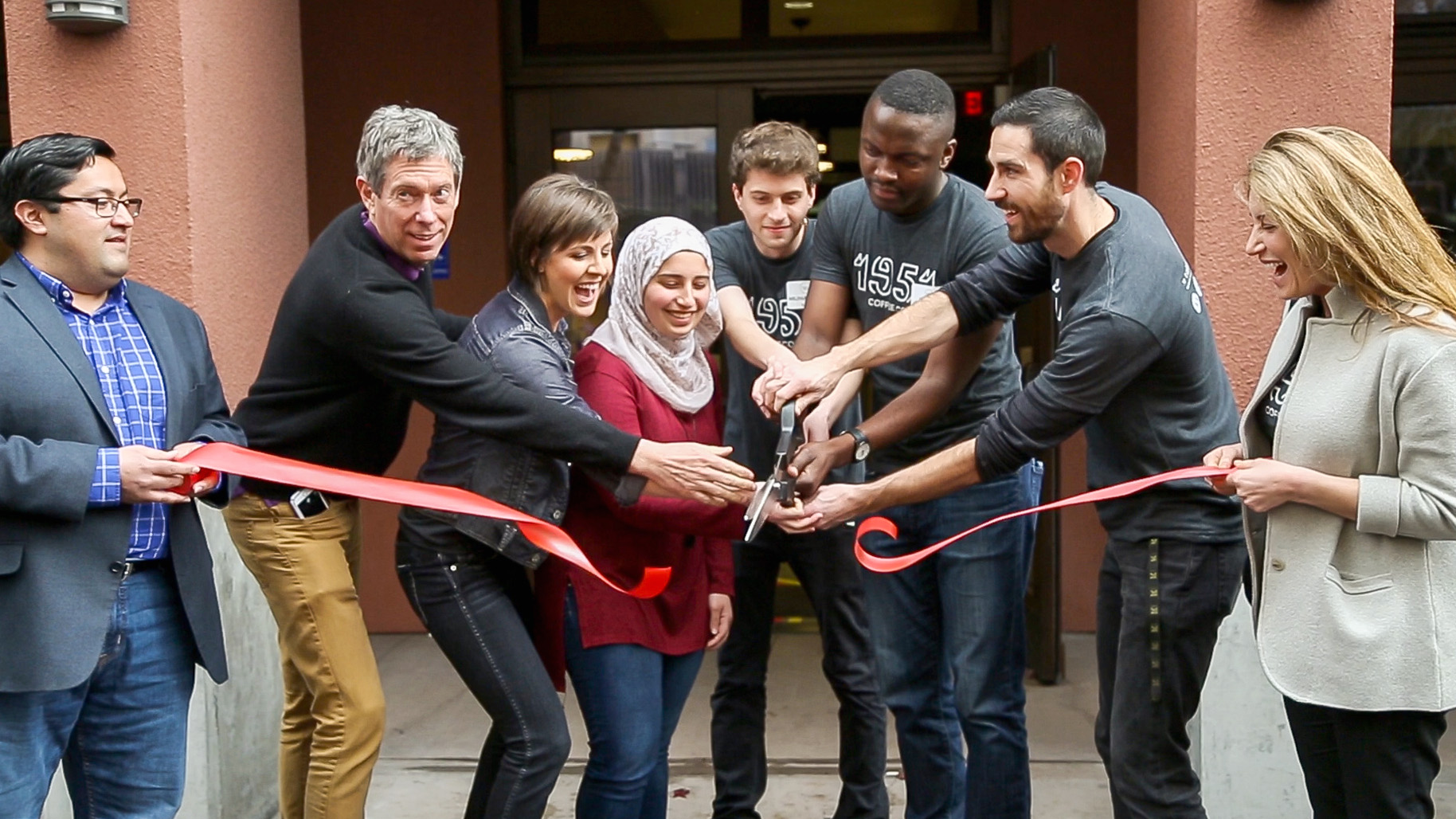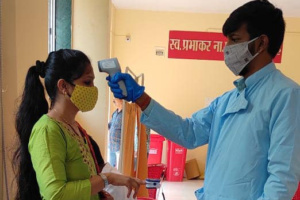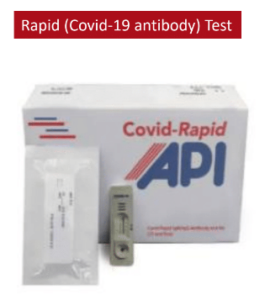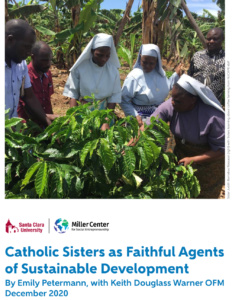Leadership Coaching in a Global Setting
Over the past 2 years, I have coached more than fifty leaders in twenty countries: ten countries in Africa, seven countries in Europe, and three in Southeast Asia.
Read More

Miller Center for Social Entrepreneurship
Accelerating Entrepreneurship to End Poverty and Protect the Planet
Over the past 2 years, I have coached more than fifty leaders in twenty countries: ten countries in Africa, seven countries in Europe, and three in Southeast Asia.
Read More
A recent graduate of Santa Clara University and former Miller Center Fellow, Marissa Boylan SCU ‘21 spent the summer interning for 1951 Coffee, a social enterprise that provides training and employment opportunities for refugees living in Northern California. As Marissa notes, “The average time that it takes a refugee to be resettled after fleeing their country is 17 years. That’s a huge chunk of time to be missing work experience and education opportunities.”
 1951 Coffee, named for the year the United Nations established refugee protection guidelines, works with refugees to help them overcome the unique barriers they face in seeking and sustaining employment. Marissa connected with 1951 through Miller Center’s new internship program which pairs Santa Clara students and recent graduates with alumni of the Center’s social enterprise accelerator programs. During her internship, Marissa created a social media fundraising campaign and worked on a $15,000 grant proposal which the organization won. She shared, “I’m really, really honored to have been able to work with a social enterprise that’s doing so much good work to help a group of people that is being consistently let down.”
1951 Coffee, named for the year the United Nations established refugee protection guidelines, works with refugees to help them overcome the unique barriers they face in seeking and sustaining employment. Marissa connected with 1951 through Miller Center’s new internship program which pairs Santa Clara students and recent graduates with alumni of the Center’s social enterprise accelerator programs. During her internship, Marissa created a social media fundraising campaign and worked on a $15,000 grant proposal which the organization won. She shared, “I’m really, really honored to have been able to work with a social enterprise that’s doing so much good work to help a group of people that is being consistently let down.”
Watch Marissa’s video to learn more about her internship with 1951 Coffee, her insights into the challenges facing refugees, her unique perspective growing up in Micronesia, and her desire to make an impact. According to Marissa, “This internship and my experience as a Miller Center Fellow honestly transformed my life and opened up so many doors for me. These opportunities taught me how to look at my passions as not just personal things but as ways to give back and serve my community.”
September 26, 2021, marks the Vatican’s World Day of Migrants and Refugees. Miller Center is proud to highlight Marissa’s internship and the tremendous work of 1951 Coffee in support of people displaced by conflict and persecution.
And watch the trailer for No Single Origin, an award-winning documentary that follows 1951 Coffee CEO Doug Hewitt and three graduates of the company’s Barista Training Program as they share the challenges of refugee resettlement in the US.
Drawing from her experiences as a member of Montana’s Blackfoot tribe, Jasmyn Burdsall SCU ‘20 is deeply committed to reducing sexual violence and developing trauma management solutions for Native and other marginalized women.
Read More
During week two of fall quarter 2020, my cohort of fellows was introduced to approximately thirty Miller Center Fellowship alumni.
Read More
Social entrepreneurship is all about disrupting equilibriums, and to me, it feels that this plays out in who is involved in social entrepreneurship as well.
Read More
SANTA CLARA, Calif., June 17, 2021 – Social entrepreneurship leaders from India, Indonesia, the Philippines and Vietnam who are focused on solutions that address vulnerable populations suffering disproportionately from climate change in the areas of energy, water, and climate-smart agriculture, have been selected to participate in a program designed to help scale their organizations.
Read More
One random day when I was a senior in high school, I was in the car with my dad having conversations about who-knows-what and just enjoying that we could spend time together. Somehow (probably influenced by my imminent departure to the big, scary realm of the US college system), we started talking about what I wanted to be when I grew up. Terrifying, I know. But for me, I felt like this question was particularly difficult because even as a young kid, I never had any ideas. My cousins all had plans, whether or not they stuck to them is irrelevant, but I had nothing. I thought I must be some kind of passion-less, interest-less blob. But that day with my dad, I thought for a split second and sincerely told him, “I want to do what everybody wants to do, I want to make the world a better place.” My dad looked at me for a moment before responding, “Not everybody wants to do that, Marissa.” So here I am, approximately four years later, and my foundation is still holding strong. But embracing a passion is only one part of feeling fulfilled. That direction must be accompanied with actionable steps to consciously embrace what brings me joy and incorporate those decisions into my everyday life. In order to make choices that bring me joy, I must first reflect on what things will do that.
 In line with the discovery of my passion for social and environmental justice, I have come to fully accept that I want my job to be engulfed in my passion. I want to take pride in my work while feeling like it has a meaningful, worthwhile impact. Miller Center’s Student Fellowship has allowed me to work with a social enterprise through the Catholic Sisters, which has given me a spectacular example of what this type of work could look like. During the fellowship, even on days when my motivation was dwindling or when nothing I was doing seemed significant, the Sisters always maintained unshakable positivity. They were amazing people to work with. Their generosity and effort always served as a reminder of the purpose that our work had. After a while, I started to notice that it was the little moments of success, when the light went off in their eyes because something we said finally clicked or when one person exclaimed that she understood so she excitedly began helping us explain it to her fellow Sisters. Though I know not all working relationships will operate this way, having the Sisters express their gratitude so openly and joyfully really kept me confident in the direction we were all working. With confidence in the direction that my passion presents, I now consider the working environments that will be most conducive to my emotional and mental well-being. I have found that project-based work allows me to be more intentional with my energy and it also provides milestones for me as I work towards a foreseeable end goal. The validation of fully accomplishing something keeps me motivated to produce quality work. Though I know that I can deal with ambiguity, and sometimes even enjoy it, I know that I get the most satisfaction from a day of work when I have a clear plan and I am able to accomplish everything on my predetermined list. Therefore, in my work life, though I do not want constant rigidity, I do want to have enough structure that I can develop and stick to plans for myself. Along the same lines, I know that I appreciate having a routine, and I definitely need to feel like I have a home base. A job that required me to constantly travel would not fit either of those things, but I think perhaps having some opportunities to travel would be a really good way for me to maintain motivation.
In line with the discovery of my passion for social and environmental justice, I have come to fully accept that I want my job to be engulfed in my passion. I want to take pride in my work while feeling like it has a meaningful, worthwhile impact. Miller Center’s Student Fellowship has allowed me to work with a social enterprise through the Catholic Sisters, which has given me a spectacular example of what this type of work could look like. During the fellowship, even on days when my motivation was dwindling or when nothing I was doing seemed significant, the Sisters always maintained unshakable positivity. They were amazing people to work with. Their generosity and effort always served as a reminder of the purpose that our work had. After a while, I started to notice that it was the little moments of success, when the light went off in their eyes because something we said finally clicked or when one person exclaimed that she understood so she excitedly began helping us explain it to her fellow Sisters. Though I know not all working relationships will operate this way, having the Sisters express their gratitude so openly and joyfully really kept me confident in the direction we were all working. With confidence in the direction that my passion presents, I now consider the working environments that will be most conducive to my emotional and mental well-being. I have found that project-based work allows me to be more intentional with my energy and it also provides milestones for me as I work towards a foreseeable end goal. The validation of fully accomplishing something keeps me motivated to produce quality work. Though I know that I can deal with ambiguity, and sometimes even enjoy it, I know that I get the most satisfaction from a day of work when I have a clear plan and I am able to accomplish everything on my predetermined list. Therefore, in my work life, though I do not want constant rigidity, I do want to have enough structure that I can develop and stick to plans for myself. Along the same lines, I know that I appreciate having a routine, and I definitely need to feel like I have a home base. A job that required me to constantly travel would not fit either of those things, but I think perhaps having some opportunities to travel would be a really good way for me to maintain motivation.
Beyond this overarching work structure, there are a few things that this fellowship has really helped me recognize. First, I know that I want to be able to deeply connect with people, specifically the people that I hope to advocate for. Throughout my work with the Sisters, we all worked to develop personal connections despite the added hardships that an online placement presented. I was able to accomplish this goal to some extent, but not to the levels that I would consider ideal. I know that I am not alone in feeling this way, but in-person connection brings me much more joy than online interactions do. Second, I really enjoy having different spaces dedicated to different activities because I am not particularly adept at compartmentalizing. I have a hard time leaving important things in one section of my mind. I can force myself to do it, but it does not come naturally. Doing work for school, the fellowship, and my jobs all in the same chair, at the same desk, on the same computer continues to present significant challenges for me. To feel fully joyful in my career, I think I will need to find a job that allows me to connect with people face-face, requires me to leave my home, and allows for a healthy work/life balance.
Even with all of these ideas for what my work life after college will look like, I recognize that COVID-19 has greatly impacted established working norms. My first job out of college, and any number of jobs after that, very well might be virtual. As such, if I do end up working remotely, I will need to take steps to adapt my ideals to that situation. For example, I foresee the need to set aside a specific space in my home for work. Having that environment even partially separate from the rest of my space will help me find the healthy work/life balance that may be even more important in this scenario. Additionally, I will endeavor to remove distance as a barrier to connection. To do this, I will try to set aside time within calls to get to know people and form those important connections even if we are not able to meet in person.
Finally, my Miller Center Fellowship has transformed how I think about my passions and the impact that I can have. When people say that they want to make the world better, they often get shut down by reminders of the scale of their impact. But the thing is, the impact will almost never be instantaneous and may not even seem profound in the moment, but it doesn’t have to be. Yes, it is nice to get validation from seeing obvious impact, and it will probably be hard sometimes to work without clearly seeing the fruits of my labor. But I think that if I can keep this understanding at the forefront of my journey, I will always be able to go back and remember that the positive effect I can have might ripple out through other people, maybe even over generations. Coming to the fellowship has helped me envision a way to bridge the worlds of what I want to do and how I might actually joyfully go about achieving it.
Written by Marissa Boylan, Student Fellow
With 400,000 cases and 3,000 reported deaths per day, India’s latest COVID-19 surge highlights the human cost of a massive systemic failure. Miller Center’s alumni social enterprise partners are stepping up in the wake of this systemic collapse and not only providing frontline care to save lives and slow the spread, but working to build a more resilient and inclusive system that can better care for the diverse needs of India’s most vulnerable populations.
Sujay Santra, Founder & CEO of iKure explains, “The second wave of the COVID pandemic in India has created a huge catastrophe in India’s public health system with a major crisis in the availability of hospital beds and oxygen deficits in tier 1 and tier 2 cities. The challenges are even greater in semi-urban and rural areas that already suffer from poor health infrastructure. With each passing day, the referral hospitals are overwhelmed with case overload. iKure and the other social enterprises highlighted here are providing innovative solutions to meet this crisis head-on.”
Since the beginning of the pandemic, iKure has screened and treated close to 100,000 patients. They are now working with a partner to launch an FDA-approved Olfactory Test, which helps early detection, especially in asymptomatic people. They plan to conduct 1 million tests in the next 30-45 days.
They are seeking US$300,000 to fund these olfactory tests and to distribute 2,500 medical kits to enable underserved rural communities to participate in remote monitoring. Contact iKure to donate.
 Sevamob uses its AI-enabled platform to offer COVID services to customers throughout India, including prevention campaigns, medical advice via telehealth, onsite screening and testing, COVID treatment, referrals for critical patients, and patient data management and analytics.
Sevamob uses its AI-enabled platform to offer COVID services to customers throughout India, including prevention campaigns, medical advice via telehealth, onsite screening and testing, COVID treatment, referrals for critical patients, and patient data management and analytics.
Sevamob is looking for partners (government agencies, corporate CSR, employers, NGOs) who would like to deploy their COVID-19 intervention in additional areas. Contact Sevamob to discuss.
 ClickMedix, in collaboration with AI Macromed, a UK company, deployed the “AiM COVID-19” app, which is being used for improved patient monitoring and intervention to mitigate the impact of COVID-19 on the healthcare system in India. This work is being done in collaboration with Dr. Vishwesh Kulkarni (University of Warwick) and Aarogyam UK, a community interest company based in Leicester, UK. Through Aarogyam UK, ClickMedix has an opportunity to work with over 25,000 volunteer organisations in India across 11 states. The focus of this work is on a village-to-district level healthcare system. It spans (1) predictive monitoring and isolation of medium-to-high-risk individuals, (2) tracking the amount of resources in hospitals, and (3) assigning patients to the most appropriate clinics nearby.
ClickMedix, in collaboration with AI Macromed, a UK company, deployed the “AiM COVID-19” app, which is being used for improved patient monitoring and intervention to mitigate the impact of COVID-19 on the healthcare system in India. This work is being done in collaboration with Dr. Vishwesh Kulkarni (University of Warwick) and Aarogyam UK, a community interest company based in Leicester, UK. Through Aarogyam UK, ClickMedix has an opportunity to work with over 25,000 volunteer organisations in India across 11 states. The focus of this work is on a village-to-district level healthcare system. It spans (1) predictive monitoring and isolation of medium-to-high-risk individuals, (2) tracking the amount of resources in hospitals, and (3) assigning patients to the most appropriate clinics nearby.
Partnerships will be welcomed. ClickMedix is looking for social businesses that want to scale their impact through technology — better data collection, analysis, and workflow automation plus AI/machine learning. Contact ClickMedix to discuss.
Beyond the health issues, the surge in India is taking a toll on organizations and communities already battered by over a year of fighting the pandemic — depleting cash reserves and draining energy and other resources. Yet throughout the crisis, social enterprises have stayed resilient and continue to support those most in need with information, education, access to markets, and livelihood opportunities.
As India faces this devastating crisis, please consider supporting these Miller Center social enterprise partners working tirelessly to slow the spread and support vulnerable communities.
Seeking new ways to express their mission in the world, Catholic Sisters in Eastern Africa are learning and applying social entrepreneurship principles in service to local youth and women. A partnership of the Association of Consecrated Women of Eastern and Central Africa (ACWECA) and Miller Center for Social Entrepreneurship has  deployed a curriculum of practical learning to mentor the Sisters in developing the skills and strategies for launching and growing social enterprises. Even though this initiative is just in the pilot stage, the Sisters have a bold vision for scaling by engaging a substantial portion of the 30,000 Sisters in this region.
deployed a curriculum of practical learning to mentor the Sisters in developing the skills and strategies for launching and growing social enterprises. Even though this initiative is just in the pilot stage, the Sisters have a bold vision for scaling by engaging a substantial portion of the 30,000 Sisters in this region.
Participating Sisters perceive social entrepreneurship to be a new form of social ministry that is fully consistent with their religious vocations and the missions of their congregations. They are launching social enterprises in the agricultural, cooperative, and education sectors. They bring many personal assets to this work, including relatively more education than many African women and a lifelong commitment to serving the poor and vulnerable in society. They have a deep understanding of the obstacles to development in their local communities, including the role of dependency. They are able to leverage the high levels of trust that local people have in their congregations, and thus lead them toward enterprise-driven economic opportunity.
This study is informed by the vision of Wangari Maathai for African development and analyzes this initiative through the lenses of trusted leaders, honest institutions, and strategies to overcome dependency. Data was collected from Sisters and the Miller Center team, in Uganda and the United States. Equipped with social entrepreneurial leadership skills and inspired by their faith, Sisters can fulfill their vision of leading inclusive and sustainable development in Eastern Africa.
Download the Catholic Sisters as Faithful Agents of Sustainable Development pdf